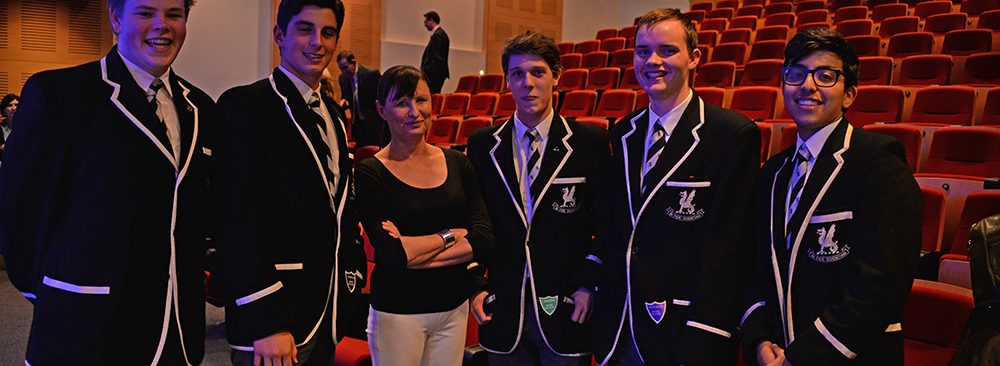Ethical or Moral? Where to stand on the advice line to young men
“How do we support young people to develop relationships that are good for them, and good for those around them?”
Professor Catharine Lumby put the question to the audience at the recent Ethics Centre Lecture titled, What makes a man in 2014. Her background is both as an academic and journalist, and she has attracted significant media attention for advising the National Rugby League on cultural change and education programs for players. Professor Lumby’s research material contributes great relevance to discussions regarding the expectations of behaviour and maturity we have of young people, and more specifically young men.
“Young people grow up in a media saturated world that is unrecognisable in comparison to the world of their parents’ childhood,” she observed. “We need to learn from young people [about that world] rather than tell them what they need to do to survive in it.”
Professor Lumby contended that a definition of relationships, that might help young people make good choices in their personal interactions, could be an ethical one. “An ethical framework is one that is more broad, like ‘what does care for self and care for others look like?’ ”
Rather than just ‘talking sense into young people’, she advocated listening, and encouraging a more sophisticated understanding of the pressures on young men to ‘be male’ and ‘man up’.
She felt that whatever education programs schools develop to help young men identify with sound choices should be designed on research findings, continue to be refined, be based on open questions, respect the culture of the young person’s world, and give examples based on real world scenarios.
Professor Lumby also saw merit in encouraging boys to be a mate, and that means supporting a mate—not just being the ethical bystander who says ‘that’s not right’ , but being the boy who steps up and refuses to accept poor behaviour, racism, sexism or bullying. This is supporting others to make ethical choices.
Research suggests young people want opportunities to talk – but they prefer to choose when these conversations happen.
Professor Lumby suggests, “Drop the dos and don’ts, don’t go into the territory of ‘you will never’ when setting ground rules.
“Talk through the situations. Talk to your children about how you developed those values you hold to be important.”
Lively discussion then ensued during question time as parents, staff and students debated the need for moral guidance and levels of tolerance in the controversial areas of texting, online viewing, stereotyping, privacy, being judgmental and more.
The evening was a great example of when the Ethics Centre encourages divergent opinion; when there are no simple answers to moral and ethical decisions; when we need to listen to each other to stretch out of comfortably help positions to consider an alternative way of interpreting the world—particularly the rapidly evolving world where our children interact, make friends, have relationships and make choices regarding their own ethical stance on what is fair, acceptable and good.
It was an Ethics Centre Lecture that encouraged the conversations to continue long after the audience had left—and that in itself is another reason to not miss the next one!






